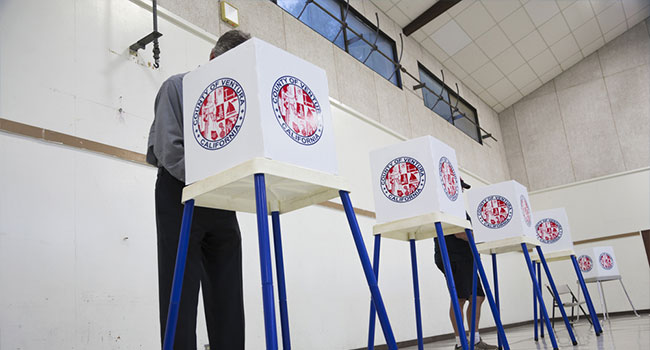
Use of Aging Software on Voting Machines Raises Cybersecurity Concerns
Lawmakers are concerned about the use of out-of-date software on voting systems across the United States, but no new legislation has been passed in both chambers.
- By Haley Samsel
- Jul 18, 2019
In the wake of revelations of Russia’s attempts to hack into American voting machines during the 2016 election, states have invested heavily in new systems with heightened security measures.
There’s just one problem: the software on the new machines is aging out and will soon not be supported with security updates by the company who produces it.
The vast majority of 10,000 election jurisdictions across the country use Windows 7 or an older operating system to program their machines, tally votes, make ballots and report vote counts, according to an Associated Press analysis published this week.
Windows 7 is set to reach its end of life in less than six months, on Jan. 14. Microsoft will stop providing technical support and producing patches to fix security vulnerabilities, putting many of these systems at risk of being hacked, the AP reported. However, the company said it would offer security updates for an added fee through 2023.
The impending security issues have already earned attention from lawmakers. Sen. Ron Wyden (D-Oregon) wrote to the federal Election Assistance Commission on July 12 to ask what the agency is doing to “address the looming cybersecurity crisis” caused by aging software.
“The continued use of out-of-date software on voting machines and the computers used to administer elections lays out the red carpet for foreign hackers,” Wyden wrote. “This is unacceptable. Now more than ever, the American people expect that the government is taking the necessary steps to secure our elections from foreign attacks.”
In his request for EAC’s knowledge of which states will likely have outdated software in the 2020 election, Wyden also notes that there are no nationwide, mandatory cybersecurity standards for elections and that the Department of Homeland Security did not collect data on which states used out-of-date software in the 2018 midterms.
“DHS revealed that it does not have that data, and, as such, has no idea how vulnerable our election infrastructure is to foreign hackers,” Wyden wrote, giving the chairwoman until July 26 to answer his questions.
Last month, the House of Representatives passed an election security bill that would give the EAC $600 million to enforce new requirements, including the use of paper ballots, updated software and the purchase of machines made in the United States.
But similar measures proposed by Wyden and his Democratic colleagues in the Senate have gotten nowhere due to Sen. Roy Blunt (R-Missouri) and other Republicans’ opposition to most federal election security legislation, The Hill reported. Blunt is the committee chair of the powerful Senate Rules Committee.
“New federal election laws would not be the right thing to do, so I assume we’d have no legislation like that come through the Rules Committee,” Blunt told The Hill.
About the Author
Haley Samsel is an Associate Content Editor for the Infrastructure Solutions Group at 1105 Media.